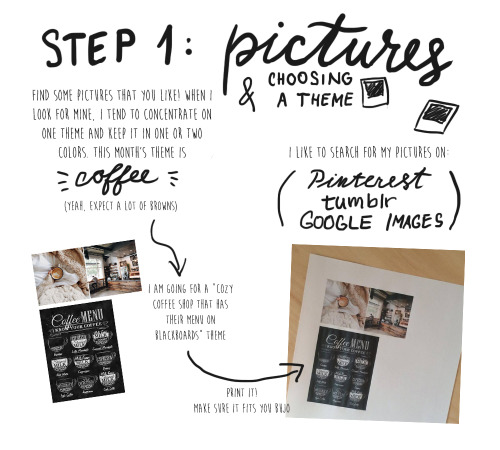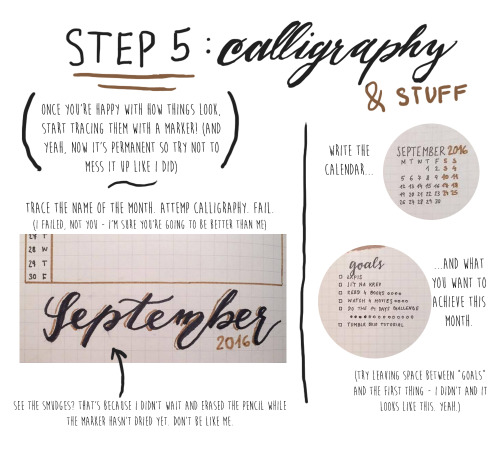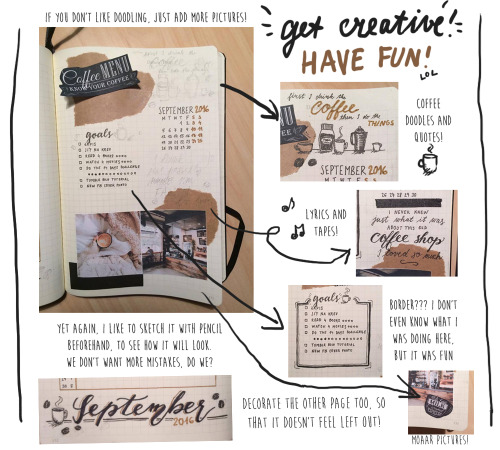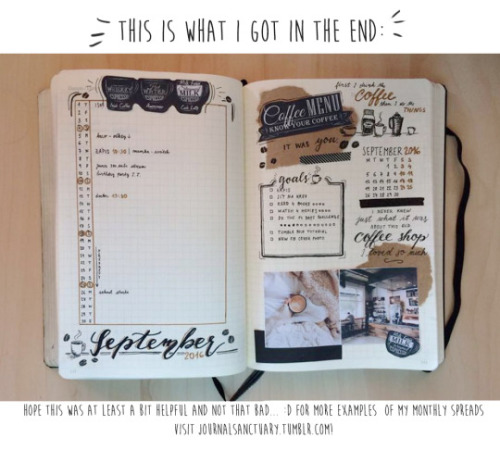不要在畏惧中失去自我。

不要在畏惧中失去自我。
Don’t lose yourself in your fear.
More Posts from Logophile101 and Others
Chinese Rules
Using 只有…..才能…. 只有读书,才能有出息。 (Zhǐyǒu dúshū, cáinéng yǒu chūxī.) Only studying can (make it so you) have a bright future.
真的!(zhēn de -> true that)

如果你只读其他人都在读的书,你的想法也不会超越其他人。
If you only read the books that everyone else is reading, you can only think what everyone else is thinking.
村上春树 Haruki Murakami
🌼🌻study smarter🌻🌼
(here are some study tips straight from my psych notes)
1. interest: the brain prioritizes by meaning, value, and relevance so u remember things better if ur interested
find a study partner
do extra practice or research
teach it to someone else (this works so well!)
2. intent: be actively paying attention. very little learning actually takes place without attention
use a concentration check sheet (every time u get distracted, put a check on ur sheet. this is supposed to program ur mind to pay attention)
while u read, talk back to the author
ask questions during lectures (this is scary ik!! but do it!)
3. basic background: make connections to what u already know
preview and skim the material before u read it. or google it!
write out a list of vocab words before a lecture and leave some spaces between them to fill in during the lecture
read ahead of lectures
watch crashcourse tbh
4. selectivity: start by studying whats important
look for bolded words, graphics, pictures, chapter review questions in ur readings
listen for verbal clues like emphasis and repetition during lectures
make urself a study guide as u read and write down questions for urself to answer later as review (kinda like cornell notes)
5. meaningful organization: u can learn/rmr better if u group ideas into diff categories
apply vocab words to ur life
make flashcards and sort them (try not to have more than seven items in one category!)
use mnemonics
6. recitation: saying ideas aloud in ur own words strengthens synaptic connections! when u say something aloud u r forcing urself to pay attention
after u read, ask urself questions
talk abt what u learned w/ classmates outside of class
again, teach someone else
7. visualization: ur brain’s quickest and longest-lasting response is to images
convert info into a chart or graph
draw it out
make a mental video of a process
look at picture/video examples
8. association: memory is increased when facts are consciously associated w something u already know. memory = making neural connections
ask urself: is this something i already know?
9. consolidation: give ur brain some time to establish a neural pathway
make a list of what u remember from class
review notes at the end of the day, every day
stop after reading each prg to write a question in ur notes
make ur own practice quiz
10. distributed practice: we all know cramming doesnt work but we do it anyway! but yeah short and frequent study sections work better
make a daily/weekly study schedule
create a time budget/time tracker (track everything ur doing for a week and see how u can be more efficient w/ the time u waste)
divide the reading/vocab by the number of days before an exam and do a little bit each day (u can use sticky notes to divide ur reading)
other tips:
stop stressing! this sounds stupid and it isnt going to be easy, but anxiety causes u to lose focus. try ur best to think positively. sleep a lot. minimize ur caffeine intake. take a walk maybe
when u need to remember something, look upward or close ur eyes (when ur eyes are open ur using visual parts of ur brain that u might not need to be using)
find a rival! (like the person right above u in class rank) secretly compete w/ them (envy can improve mental persistence bc it makes u focus more intensely) but dont overdo it!
walking and sleeping build memory storage in ur brain
eat flavonoids! (grapes, berries, tea leaves, cocoa beans make neurons in the brain more capable of forming new memories + increase blood flow to the brain)
obstacles force ur brain to try harder, so space learning lessons apart or create a puzzle to solve or change ur physical setting
《冲突》 “Conflict” 他们都说 They all say 我是个话很少的孩子 I’m a child of few words 对此我并不否认 This I don’t deny 实际上 But actually 我说与不说 Whether I speak or not 都会跟这个社会 With this society I’ll still 发生冲突 Conflict
许立志 (Xu Lizhi)
This comes from an article “The Poetry and Brief Life of a Foxconn Worker” which you should definitely look at the rest of, it’s really heartwrenching. Xu Lizhi was a 打工者 (dagongzhe), a factory worker who’d come in from his rural home in Guangdong to work in Shenzhen. He committed suicide when he was 24.
Shenzhen has a Special Economic Zone, so there is more or less a capitalist “bubble” where these huge factories are. Factories are supposed to mainly hire people in the same province because of China’s 户口 system of essentially population control, but in reality huge numbers of people come to try and get work since China has one of the largest rural/urban income divides. As you’ve probably heard, they work in terrible conditions—the whole system is a tangle of bringing in bodies and controlling them. If you’d like to learn more, Made in China: Women Factory Workers in a Global Workplace is a good book I’ve been reading for class (the vast majority of workers are women), or a crash course movie version Mardi Gras: Made in China (the narrator is clearly going for guilt but the actual footage is good). It’s easy to see these things and brush it off as sort of inevitable, but no, this shit wouldn’t fly in the states, how can we make that true everywhere. You can’t look at these individual stories and just decide that’s ok.
(via tiantianxuexi)

不要降低你的梦想为了屈服现实。增加你的信念去匹配你的命运。
Don’t downgrade your dream just to fit your reality. Upgrade your conviction to match your destiny.

你的过错应该成为你的动力,而不是借口。
Your mistakes should be your motivation; Not your excuses.











Hey! I am really late with this, but I though that some of you might like to see how I make my monthly spreads. I did this sort of “infographics” (??? am I even allowed to call this thing infographics??) and even though it looks like this, I had so much fun making it :D. I really don’t know whether this is helpful or not, I tried. In case you’d like to see more tutorials (and hopefully better ones) in the future, let me know please? And thanks if you read it till the end, it’s so long :D
(I totally ran out of space for pictures at the end lol)

Learning a foreign language is intimidating to many students, so I though I’d share some of my best tips for effective language studying!
MEMORIZE SMARTLY
Be selective about vocabulary. If you’re learning a language for class, you most likely won’t have much control over the material you learn. However, if you’re self-studying and you do have a choice, invest your time and energy wisely by prioritizing vocabulary to memorize based on what is significant and relevant.
Significant words are the ones that are the most common in the language. Learning these core words and phrases will give you a bigger return by allowing you to sooner start comprehending more things. For example, studies show that 0.5% of the English language, or the 3000 most common words, makes up 95% of the content in any given conversation or written text (source). You can search online to find lists of the words that appear most frequently in your target language. I used this list of the top 1000 French words to get me started.
Relevant words are the ones that pertain to your unique needs and interests, such as vocabulary to describe yourself, your career, and/or your family members. If you’re traveling to another country, you may need phrases for introducing yourself, asking for directions, or buying things. If you’re a gourmand, you may want to learn the names of different types of food. You’ll be more likely to retain and use words that are interesting and relevant to your own life.
Use spaced repetition to memorize faster. I explain how to use the spaced repetition method in this post, although you can also achieve the same effect without using Anki.
Apply the vocabulary you’ve learned. You can engage with new vocabulary by doing the following:
Make it a goal to incorporate the word you’ve just learned into your next three conversations.
Learn phrases and idiomatic expressions that include the new word (ex: if you’ve just learned the English word green, learn green thumb and green with envy next).
Research the context the word is usually used in– is it formal? casual? vulgar? specific to one particular use or topic?
Write funny, creative sentences or stories using your new word(s) to help them better stick in your memory. This is especially important for verbs, so you can see the conjugations in action instead of merely memorizing a table of endings.
Don’t neglect memorizing correct spelling, accent marks, or the genders of new words. These often seem like trivial details to beginning language learners, but slacking off on these will come back to bite you down the road. Even small mistakes can change the entire meaning of what you want to say. Genders, especially, are hard to memorize but imperative to know for making adjectives and object pronouns agree.
AVOID TRANSLATING
Most language learners will hear/read something being spoken/written in their target language, mentally translate it to their native language and formulate a response in their native language, then translate their response back to their target language. This direct translation will slow down your rate of comprehension and expression, make you unable to speak naturally and fluently, and increase your chances of making mistakes with idiomatic expressions (ex: incorrectly writing Je suis 12 ans instead of J’ai 12 ans). Aim to avoid internally translating as much as possible.
Instead, learn to think in your target language by using the following methods:
Connect new vocabulary and phrases with images and ideas, not translations or definitions in your native language.
Draw doodles that represent new vocab words you receive. This doesn’t work for all words, but I try to draw a picture for all the words on my weekly French vocabulary list, and I’ve found it very helpful.
When making flashcards, put the new word on one side and an image to represent it (as opposed to the translation in your native language) on the other.
Look around you and describe items you see in your target language (color, size, use, etc.)
If you’re reading and you come across a word you don’t know, attempt to ascertain its meaning through context clues instead of immediately looking it up.
Once you’ve reached an intermediate/advanced level, use a monolingual dictionary so definitions for all new vocabulary will be in your target language instead of your native one.
However, don’t feel discouraged if you find yourself frequently translating in your head. The way most schools teach foreign languages focuses on translating, not thinking in the target language, so you’ll likely have some tendencies and habits that are hard to break. Practice, practice, practice, and you’ll get better!
IMMERSE YOURSELF
Obviously, the fastest way to learn a new language is to travel to a foreign country where you’ll be forced to use it. But if you don’t have the resources to take a trip, there are many ways to get the immersion effect from the comfort of your own home.
Consume a variety of written and spoken language though television, movies, music, news, blogs, poetry, comics, podcasts, audiobooks, YouTube videos, and/or children’s books.
If you’ve already completed your Duolingo course, try doing it backwards. Instead of the native language to target language course, do the target language to native language course. If you know 3+ languages, do the Language 2 to Language 3 course for an extra challenge!
Speaking of Duolingo, the immersion feature is a great way to find articles in your target language that are both appropriate to your skill level and relevant to your interests. I tend to avoid the translation aspect for reasons stated in the previous section, but I still think reading the articles is useful.
Find a pen pal who’s a native speaker. You can communicate through email or online chat, but snail mail could allow you to also send each other trinkets and souvenirs from your respective countries/cultures. HelloTalk is a great app that allows you to connect with native speakers of your target language who are learning your native language, so you can teach and help each other.
Change the language on your phone, laptop, and/or browser to your target language. You can change the language in your device settings, and I personally use the extension Language Immersion for Chrome for my browser. Just make sure you know how to change it back!
Lastly, have confidence and take risks! Make an attempt to say something even if you’re not 100% sure it’s correct. I know how embarrassing mistakes can be (I once used “un baiser” as a verb and I still cringe thinking about it. Yikes!), but ultimately it’s all part of the learning process and leaving your comfort zone is the only way to improve. Trying to learn other languages is admirable in itself, so take pride in that and don’t be afraid to put yourself out there!
Thanks for reading! If you have questions, feedback, or post requests, feel free to drop me an ask.
+Click here for the rest of my original reference posts!
—Sophia :)

我会在伤痛中找到力量并改变我的方法。
I’ll find strength in pain and I will change my ways.
100 days of languages: day 10
day 10: learn 4 idioms
1. 如火如荼 rú huǒ rú tú like wildfire, unstoppable
他的生意如火如荼。
2. 大街小巷 dà jié xiǎo xiàng great streets and small alleys, everywhere in the city
每天晚上都有很多警察在全市的大街小巷进行查巡。
3. 赞不绝口 zàn bù jué kǒu to praise without cease, to praise to high heaven
游客总是对我们的优美环境赞不绝口。
4. 平易近人 píng yí jìn rén amiable and approachable, easy-going
好的领导平易近人。
-
 yaguniversity liked this · 1 year ago
yaguniversity liked this · 1 year ago -
 setquartertileplacementon liked this · 1 year ago
setquartertileplacementon liked this · 1 year ago -
 wearetatal liked this · 1 year ago
wearetatal liked this · 1 year ago -
 budchan9 liked this · 6 years ago
budchan9 liked this · 6 years ago -
 huiyouhope-blog liked this · 8 years ago
huiyouhope-blog liked this · 8 years ago -
 weirdstuffsbelongtoanotter liked this · 8 years ago
weirdstuffsbelongtoanotter liked this · 8 years ago -
 hdiep2888 liked this · 8 years ago
hdiep2888 liked this · 8 years ago -
 hayenan reblogged this · 8 years ago
hayenan reblogged this · 8 years ago -
 goglot reblogged this · 8 years ago
goglot reblogged this · 8 years ago -
 knknolursus liked this · 8 years ago
knknolursus liked this · 8 years ago -
 euinternauta reblogged this · 8 years ago
euinternauta reblogged this · 8 years ago -
 euinternauta liked this · 8 years ago
euinternauta liked this · 8 years ago -
 phnnga liked this · 8 years ago
phnnga liked this · 8 years ago -
 kongbeelee liked this · 8 years ago
kongbeelee liked this · 8 years ago -
 casspurrjoybell-1 reblogged this · 8 years ago
casspurrjoybell-1 reblogged this · 8 years ago -
 casspurrjoybell-1 liked this · 8 years ago
casspurrjoybell-1 liked this · 8 years ago -
 virginianman liked this · 8 years ago
virginianman liked this · 8 years ago -
 inthecap reblogged this · 8 years ago
inthecap reblogged this · 8 years ago -
 inthecap liked this · 8 years ago
inthecap liked this · 8 years ago -
 henkspeksnijderart liked this · 8 years ago
henkspeksnijderart liked this · 8 years ago -
 captain-quarters reblogged this · 8 years ago
captain-quarters reblogged this · 8 years ago -
 blueeyes910 reblogged this · 8 years ago
blueeyes910 reblogged this · 8 years ago -
 lovejolynnblr liked this · 8 years ago
lovejolynnblr liked this · 8 years ago -
 rubenleobcn reblogged this · 8 years ago
rubenleobcn reblogged this · 8 years ago -
 fuzzybunny777-blog reblogged this · 8 years ago
fuzzybunny777-blog reblogged this · 8 years ago -
 fuzzybunny777-blog liked this · 8 years ago
fuzzybunny777-blog liked this · 8 years ago -
 bluebellheart reblogged this · 8 years ago
bluebellheart reblogged this · 8 years ago -
 thegoodliife reblogged this · 8 years ago
thegoodliife reblogged this · 8 years ago -
 rubenleobcn liked this · 8 years ago
rubenleobcn liked this · 8 years ago